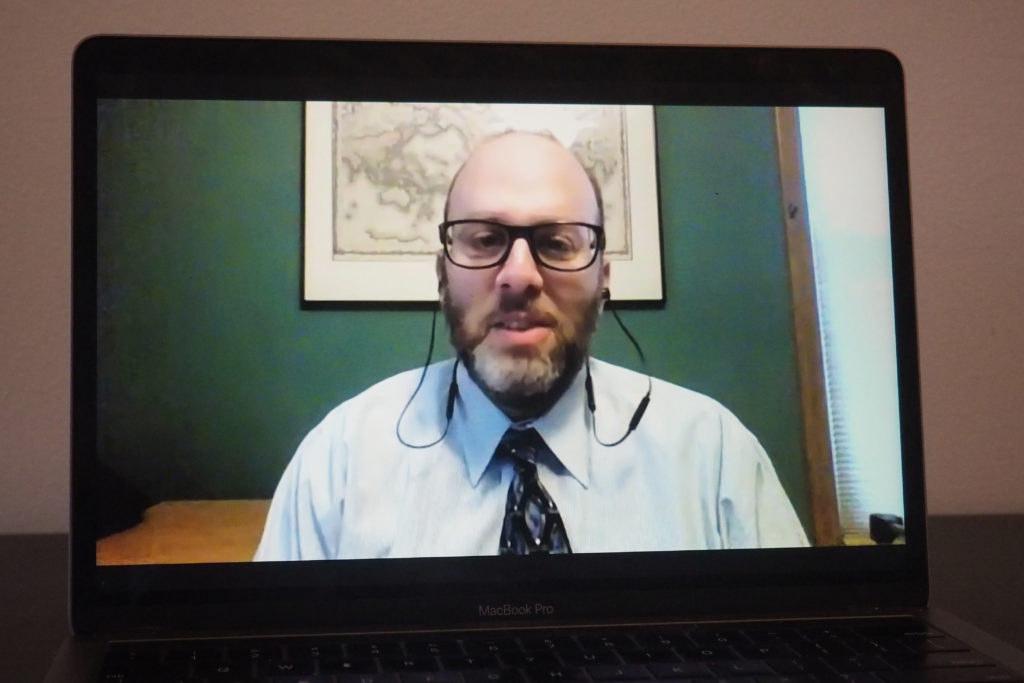A law professor discussed what could have occurred in the final days of outgoing President Donald Trump’s administration Tuesday.
Brian Kalt, a professor of law at Michigan State University, explained constitutional law of the presidency, impeachment, presidential succession and the 25th Amendment to the U.S. Constitution and what may happen to Trump after President Joe Biden takes office. GW Law hosted the event, which was titled, “Impeachment, the twenty-fifth amendment and the final days of President Trump.”
This discussion was held in the midst of Trump’s attempts to dispute November’s president election results and the aftermath of a pro-Trump mob engaging in a riot at the U.S. Capitol on the day Congress was set to certify the election results.
In case you missed it, here are the main takeaways from the event:
25th Amendment
Kalt said the 25th amendment is a relatively recent add-on to the Constitution, and she said the amendment is vague and has only been invoked a few times.
“It doesn’t tell us what process we use to decide that the president is suffering and his inability to do it,” he said. “It doesn’t tell us who decides, and most importantly, it doesn’t tell us whether the president takes power back.”
Kalt said the 25th amendment was designed to create a process for the president to regain power after he is temporarily unable to perform his duties. He noted that the vice president serves as acting president until the president is able to resume their duties.
“So this is not really well suited to use against the president who can say that he’s OK,” Kalt said.
Kalt said invoking the 25th amendment is best suited for presidents who are unable to perform their tasks, like when President Woodrow Wilson suffered a debilitating stroke while in office. This amendment is not for presidents who do “bad things,” as it is more appropriate to use impeachment against them, he said.
“Impeachment is easier because you don’t need the vice president to sign up,” he asid. “You don’t need the Cabinet to sign up. You only need a simple majority in the House [of Representatives].”
Presidential self-pardon
Kalt said the argument in favor of presidential self-pardon can be explained in that the power to pardon in the Constitution is “broad” and “barely limited,” which suggests that the president can pardon himself, while the counter argument describes presidential self-pardon as unprecedented in American history, he said.
“You can’t be the judge in your own case,” Kalt said.
Kalt said the public speculation that Trump would resign and have outgoing Vice President Mike Pence pardon him was “pointless” and not likely to have happened.
“Even if the president can pardon himself, if he abuses his powers, he can be impeached and he can be prosecuted,” he said.
Late impeachment trial
Kalt said impeaching a president who is about to leave office might seem “counterintuitive” and “odd.” But he said impeaching either the president, vice president or civil officers can be done even if they are no longer in office.
“Impeachment is not just about removal,” Kalt said.
Kalt said impeachment can bring a “deterrent” effect, which constrains future presidents through the possibility of impeachment. He said the process can also hold those government officials accountable and lead to “consequences of disqualification” for an official holding future office, he added.
“Impeachment allows the structure of impeachment to be vindicated, allows the purpose of impeachment to be vindicated, allows the purpose of impeachment to be fully realized,” Kalt said.








